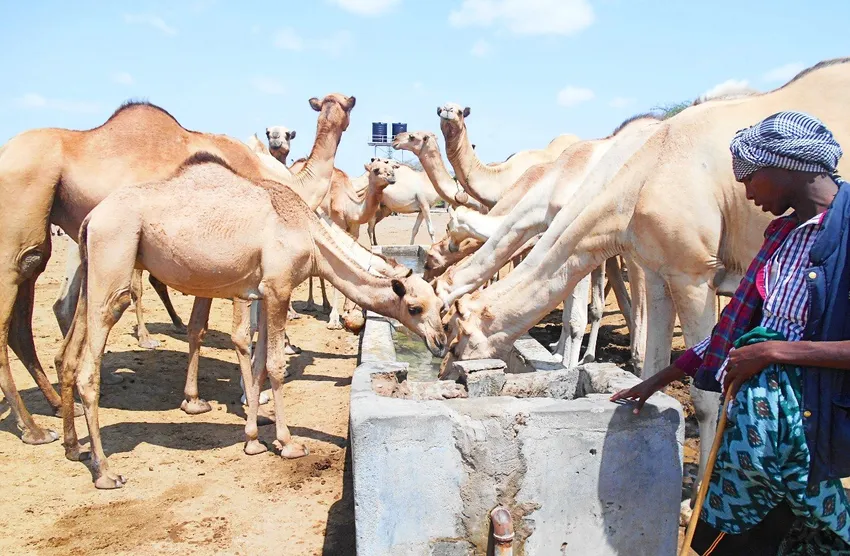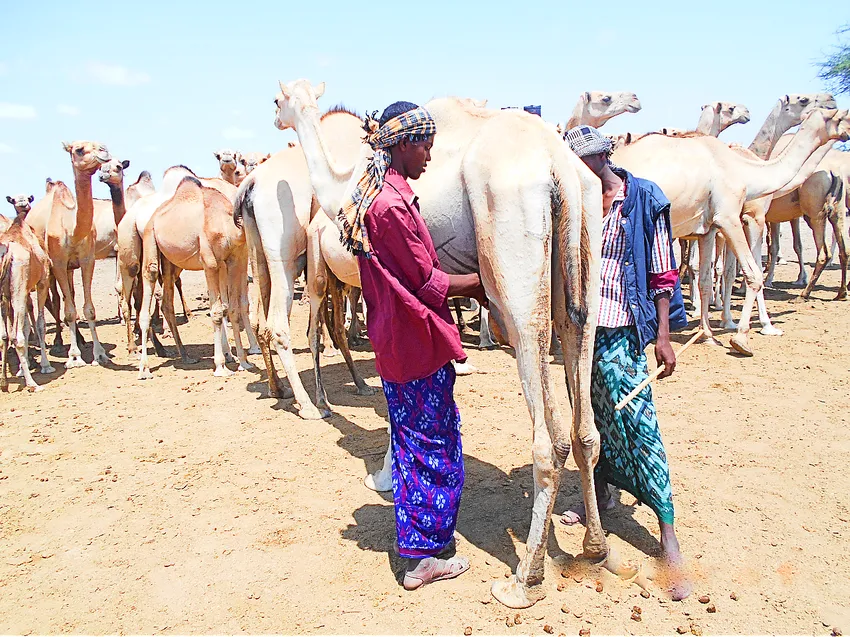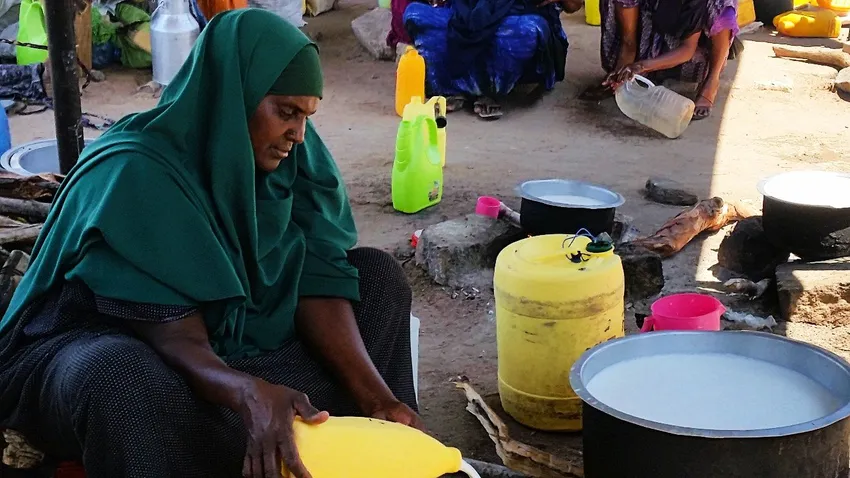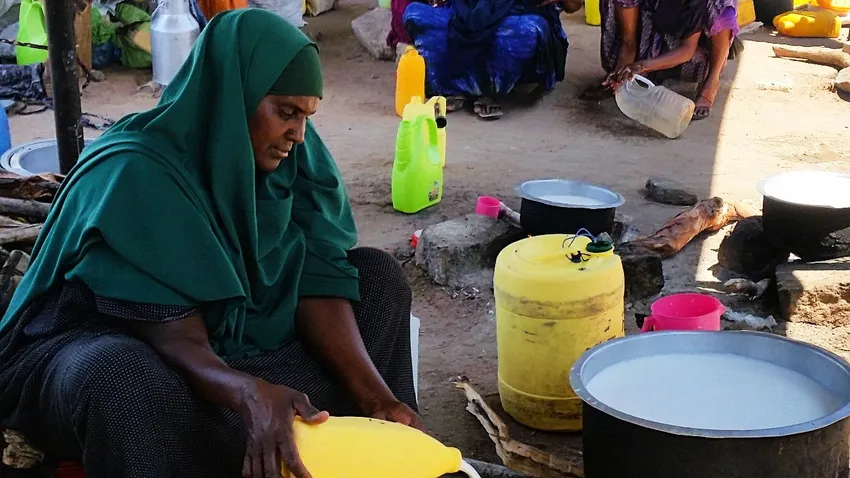This campaign has now closed
This project will harness the benefits of camel milk production for vulnerable families. Activities will build resilience to climate shocks and protect the environment through improved management of water resources, drought resilience strategies and knowledge of sustainable grazing practices.
Categories
Beneficiaries
Situation
Poverty levels in drought-prone Garissa and Wajir remain very high; between 62-65% against a national average of 36%. Camel milk is the most important source of nutrition among the poor; during droughts camels can contribute up to 50% of total nutritional intake. Demand for camel milk is increasing but an ineffective market system and low productivity are stifling its potential. Without reliable access to this nutritious, sustainable source of food, resilience to climate shocks remains very low.
Solution
This project will develop camel milk as a sustainable income and nutrition source for vulnerable families. Training will be provided on each stage of the supply chain to increase efficiency. With reliable, sustainable availability of camel milk, resilience to climate shocks will be greatly increased in the community. Training on the sustainable management of water sources will be provided, and community knowledge of sustainable grazing practices will be increased to protect the environment.



